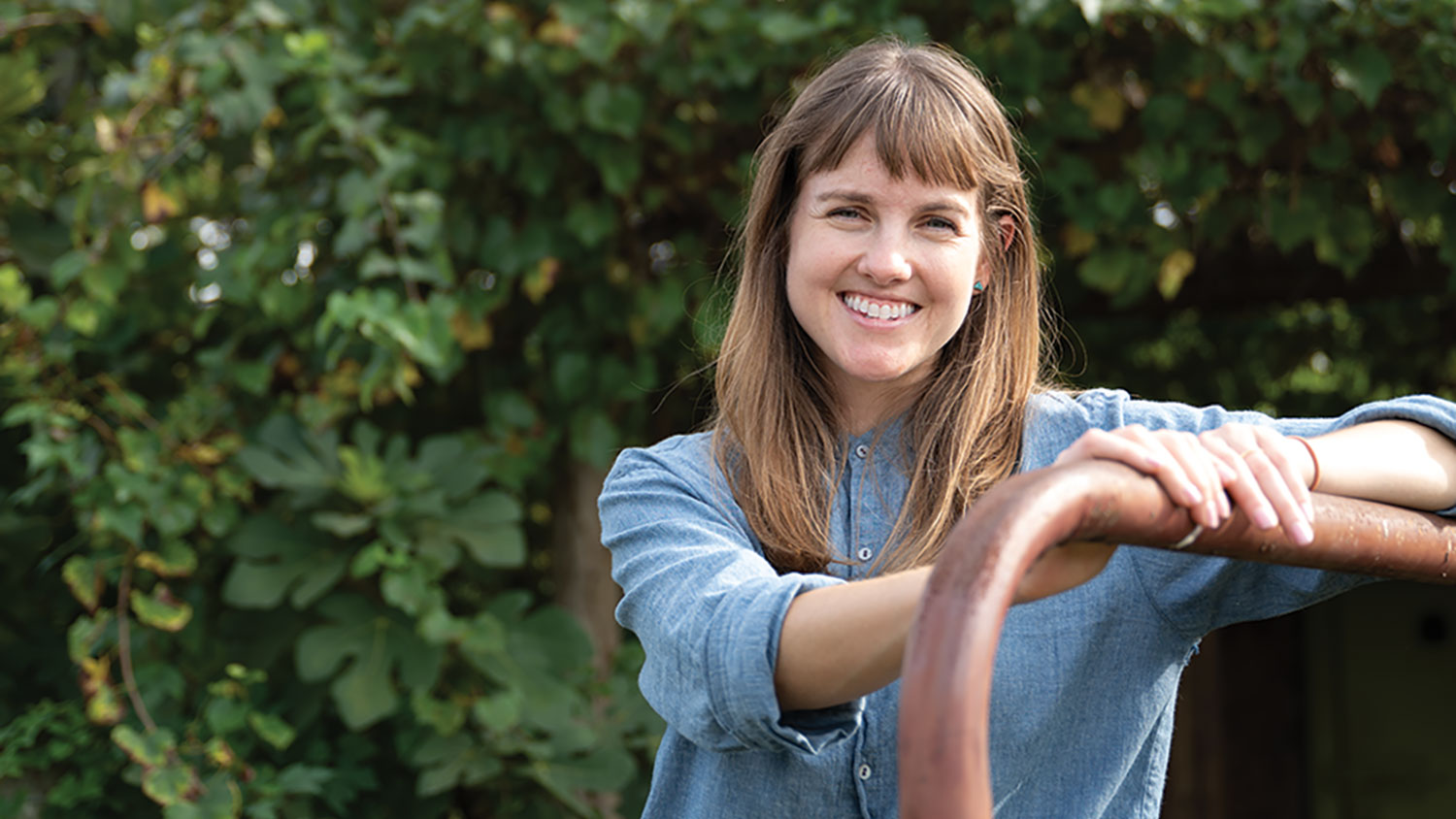Home Grown
The Agroecology Education Farm is a place where crops — and possibilities — flourish.

On a narrow gravel road a few miles from campus, and out past NC State’s beef and poultry education units, sits a six-acre plot of land with a colorful hand-painted sign: “Agroecology Education Farm.”
That’s the place where Ann Bybee-Finley, director of the farm and manager of the agroecology program, made the decision to come to NC State during a job interview. “I ate a fig. It was warmed by the sun,” she says. “I was like, ‘How can I not take this job?’”
She arrived last summer to supervise the agroecology major, teach agroecology courses and direct the farm. The farm currently produces five tons of produce using organic practices each year, from beets and spinach to squash and tomatoes, most of which goes to the Fountain Dining Hall on campus. There, chefs turn it into farm-to-table goodness.
That will continue, Bybee-Finley says, but she plans to double the size of the farm, incorporating an adjacent six-acre plot now used for traditional row crops. Bybee-Finley came to NC State from the USDA’s Agricultural Research Service, where she concentrated on how practices like crop rotation can help improve yields and buffer against extreme weather. Expanding the agroecology farm, she says, will help students learn to incorporate some aspects of agroecology into traditional farming practices.

For row crops, she envisions demonstration plots that use mineral fertilizer and biological pest control. “I want to come up with solutions that some of our students might be able to say, ‘Here’s how I can apply this to my family farm.’”
The current farm is a classroom for the 45 – 50 students majoring in agroecology, a program created five years ago. It’s also become a popular attraction for students with open hours on Friday afternoons to come and unwind (or help weed). There’s even a “Yoga at the Farm” program.
Bybee-Finley hopes all that continues, even as the farm grows. And she’s hoping to improve the signage, as well, adding markers telling visitors more about what kind of crops are growing — and replace that hand-painted sign on the gravel road.
Tell Us What You Think
Do you have a personal connection to this story? Did it spark a memory? Want to share your thoughts? Send us a letter, and we may include it in an upcoming issue of NC State magazine.


